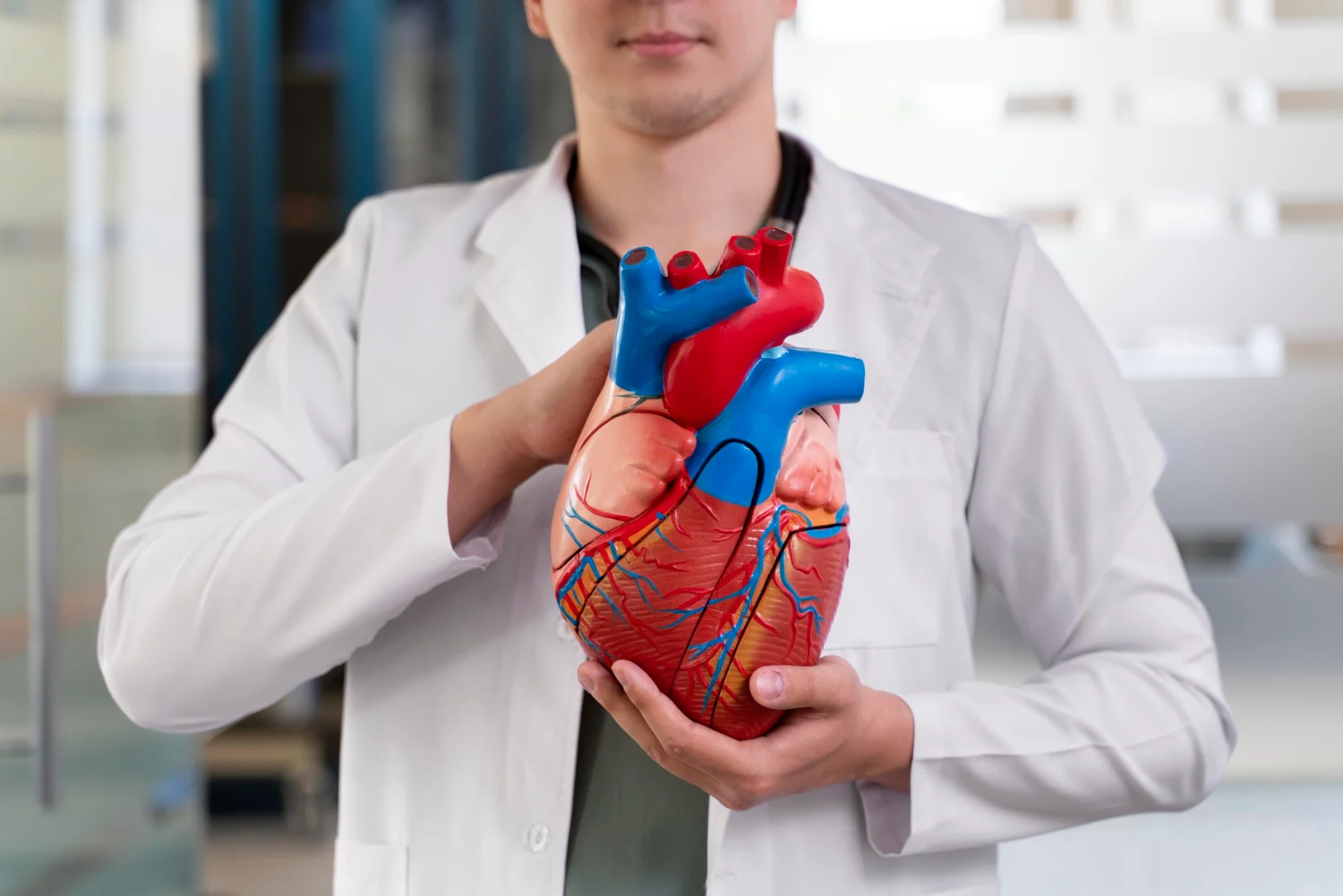What Is The Difference Between Heart Attack And Heart Failure?
Category: Cardiology
Heart disease remains a leading cause of morbidity and mortality worldwide. Among its various manifestations, heart attacks and heart failure are two prevalent yet distinct conditions. While both affect the heart's function, they differ in causes, symptoms, treatment approaches, and long-term management. Understanding these differences is crucial for early detection, effective treatment, and improved patient outcomes.
At Lokmanya Hospitals, recognized as one of the best cardiology hospitals in Pune, we are committed to providing comprehensive cardiac care. Our multidisciplinary team of cardiologists, cardiac surgeons, and healthcare professionals utilize state-of-the-art technology to diagnose and treat various heart conditions, including heart attacks and heart failure.
What Is a Heart Attack?
A heart attack, medically termed myocardial infarction, occurs when blood flow to a part of the heart muscle is blocked, usually by a blood clot. This blockage can damage or destroy part of the heart muscle. The most common cause is coronary artery disease, where plaque buildup narrows the arteries. If a plaque ruptures, a blood clot can form and obstruct blood flow.
Common Symptoms:
- Chest pain or discomfort, often described as pressure, squeezing, or fullness
- Pain or discomfort in the arms, back, neck, jaw, or stomach
- Shortness of breath
- Cold sweat, nausea, or lightheadedness
Risk Factors:
- High blood pressure
- High cholesterol
- Smoking
- Diabetes
- Obesity
- Sedentary lifestyle
Treatment:
Immediate medical attention is crucial. Treatments may include medications like aspirin and thrombolytics, procedures like angioplasty, or surgery such as coronary artery bypass grafting.
What Is Heart Failure?
Heart failure, also known as congestive heart failure, is a chronic condition where the heart doesn't pump blood as well as it should. This inefficiency can lead to fluid buildup in the lungs and other parts of the body. Unlike a heart attack, which is a sudden event, heart failure develops over time as the heart's pumping ability declines.
Common Symptoms:
- Shortness of breath during daily activities or when lying down
- Fatigue and weakness
- Swelling in the legs, ankles, and feet
- Rapid or irregular heartbeat
- Persistent cough or wheezing
Risk Factors:
- Coronary artery disease
- High blood pressure
- Previous heart attack
- Diabetes
- Certain medications
- Sleep apnea
Treatment:
Management includes lifestyle changes, medications like ACE inhibitors and beta-blockers, and in some cases, devices like pacemakers or defibrillators. Advanced cases may require heart transplantation.
Heart Attack vs. Heart Failure: A Comparative Table
Aspect | Heart Attack | Heart Failure |
Definition | Sudden blockage of blood flow to the heart | Chronic inability of the heart to pump blood |
Onset | Sudden | Gradual |
Primary Cause | Coronary artery blockage | Weakened heart muscle due to various conditions |
Symptoms | Chest pain, shortness of breath, nausea | Fatigue, swelling, shortness of breath |
Treatment | Emergency intervention (e.g., angioplasty) | Long-term management (medications, lifestyle) |
Prognosis | Depends on prompt treatment | Progressive; managed over time |
Why Choose Lokmanya Hospitals for Cardiac Care?
At Lokmanya Hospitals, we understand the complexities of heart diseases and offer a patient-centric approach to treatment. Our cardiology department is equipped with advanced diagnostic tools and treatment modalities to manage both acute events like heart attacks and chronic conditions like heart failure.
Our team of experienced cardiologists and cardiac surgeons work collaboratively to provide personalized care plans. We also emphasize preventive cardiology, helping patients understand risk factors and adopt heart-healthy lifestyles.
Conclusion
While heart attack and heart failure are both serious heart conditions, they differ significantly in their causes, symptoms, and treatment approaches. Recognizing the warning signs early and seeking prompt medical attention can make a life-saving difference. At Lokmanya Hospitals, widely recognized as the best cardiology hospital in Pune, we offer expert-led cardiac care—ranging from emergency interventions for heart attacks to advanced, long-term heart failure management. Our goal is to ensure every patient receives personalized, compassionate, and cutting-edge treatment for a healthier, stronger heart.
FAQs
1. What is the main difference between a heart attack and heart failure?
A heart attack is a sudden blockage of blood flow to the heart muscle, causing damage. Heart failure is a chronic condition where the heart cannot pump blood effectively over time.
2. Can a heart attack lead to heart failure?
Yes, a severe or untreated heart attack can weaken the heart muscle and eventually lead to heart failure.
3. What are the common symptoms to watch for in both conditions?
Heart attack symptoms often include chest pain, shortness of breath, and nausea. Heart failure symptoms usually involve fatigue, swelling in legs, shortness of breath during daily activities, and persistent cough.
4. How are heart attacks treated compared to heart failure?
Heart attacks require immediate emergency interventions like angioplasty or bypass surgery. Heart failure treatment focuses on long-term management through medications, lifestyle changes, and sometimes devices like pacemakers.
5. Why is Lokmanya Hospitals considered one of the best for cardiac care?
Lokmanya Hospitals provides comprehensive cardiac care with experienced specialists, advanced diagnostic tools, personalized treatment plans, and a strong focus on both emergency and preventive cardiology.
Previous blog

What Causes Hematuria?
Next blog






